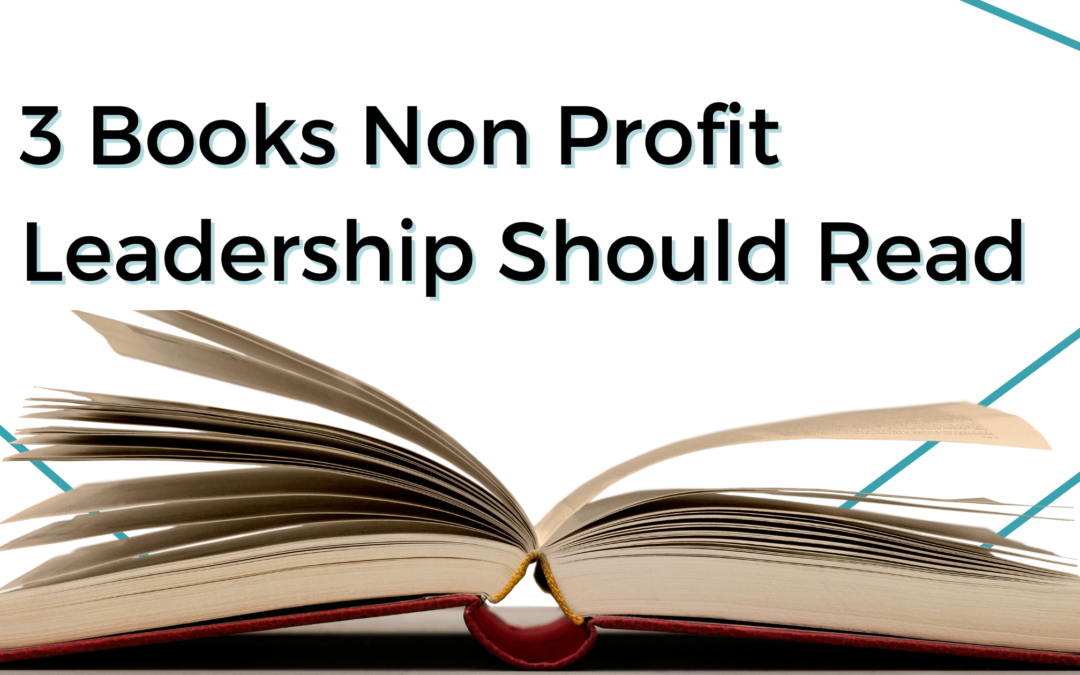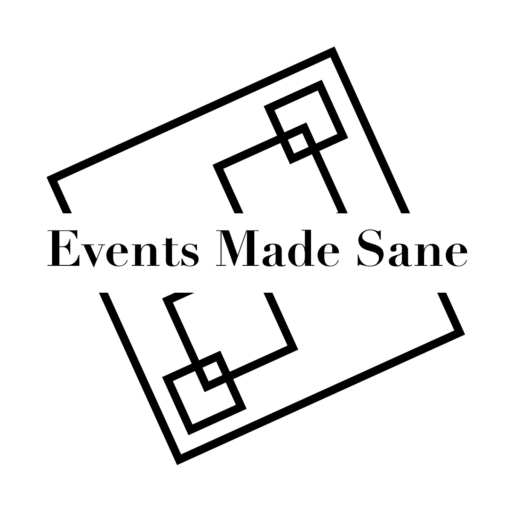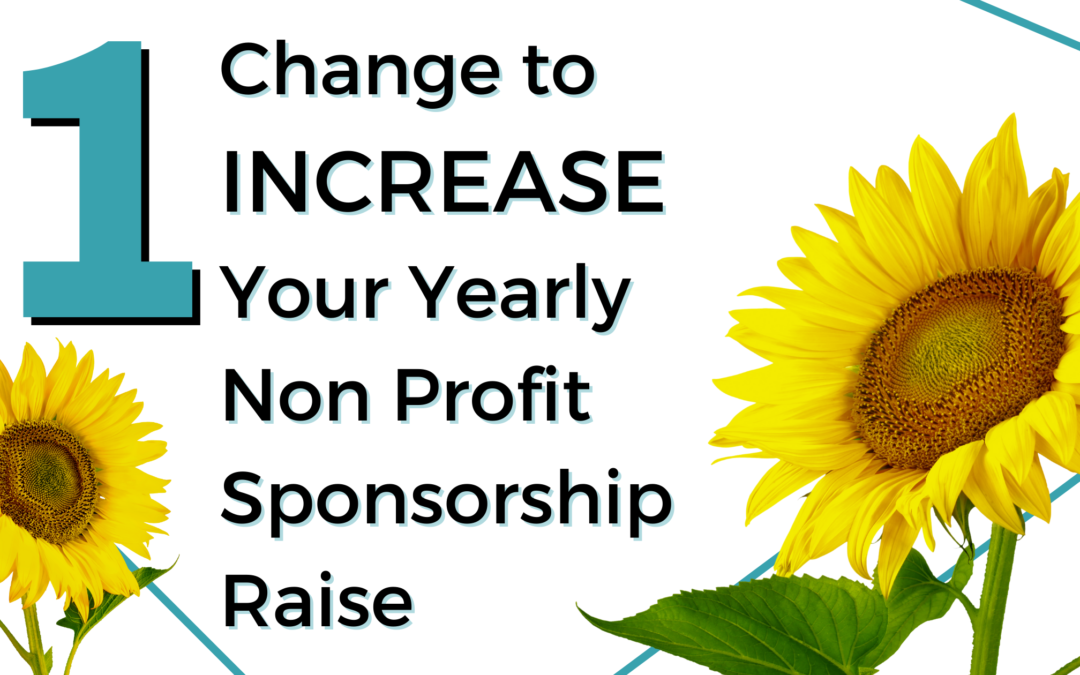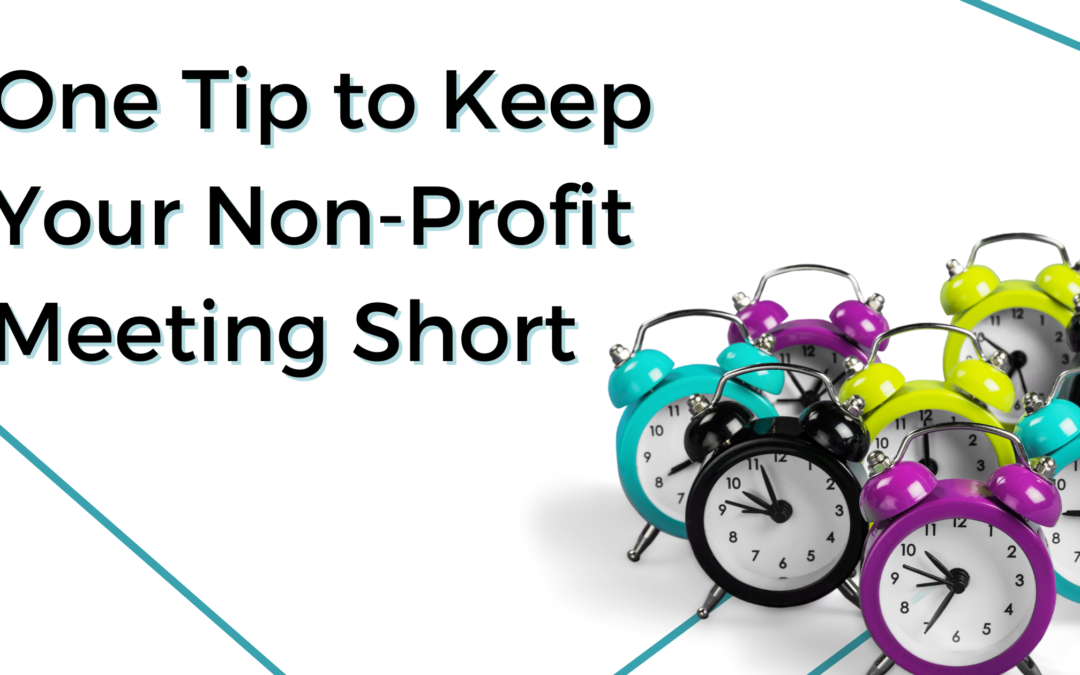
Uncategorized
Meetings for your non-profit can often drag on and on as people debate ideas endlessly. I hate meetings where people are saying the same thing over and over. This can be especially true for big decisions and officer elections. So here is the solution.
Each item debated gets 3 pros and 3 cons.
This means that only three people get to speak up for the idea and three people can speak against the idea.
Example:
Idea: We should do an Under the Sea theme for our next gala.
Pro: I like this, it will be easy to achieve with uplighting and limit the decorations we need.
Con: Three other organizations doing an under the sea theme this year.
This idea requires the following
- Someone who is “running” the meetings and calling on people as they raise their hands.
- Someone to keep a tally of the pros and cons
- Explanation of the rules to your members.
- Strict adherence to this rule.
This rule forces people to really think about what they want to say and the listen to what others are saying so that they do not simply repeat a point and “waste” a pro or con. It keeps those who simply want to hear their own voice from speaking up at every point.
Once the three pros and three cons are stated, a vote is held on if you move forward with the idea or not.
This may seem extreme but you can also break ideas down into small chunks to vote on.
Example Proposal: I think we should have a gala fundraiser this year with a theme of Under the Sea that will be held in September.
This can be broken into three parts to vote on and should so people do not skate bad ideas through on the coattails of a good idea.
The three parts
- Have a Gala Fundraiser
- Have the theme be Under the Sea
- Host the gala in September
You can debate and vote on each section. This allows you to say yes to hosting a Gala Fundraiser but no to the theme and hosting in September. This simple tip can keep your non-profit meetings on track and under hours.
Learn how to Navigate Everyone’s Wishes While Event Planning.
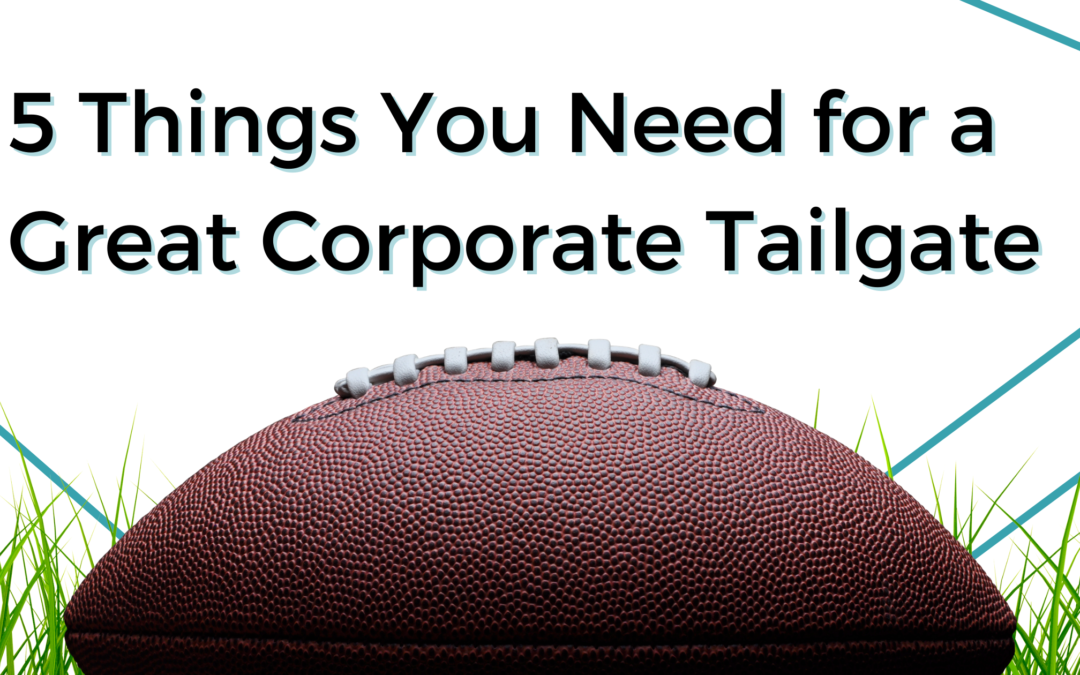
Business, Events
College football is starting back up and that will hopefully include tailgates and fans in stadiums. A tailgate makes a great corporate event if done the right way. It offers you a chance to wine and dine customers outside of the normal “business” confines. People let down their guard and can be more open at a tailgate than a dinner or educational event.
You need 5 things for a great tailgate and then are in order of importance.
1. Good Food
Food is crucial for any event in my opinion but tailgates revolve around food. Your best bet is to find a local restaurant and have them cater it for you. If you have more than 50 people, ask them to come out to set up the food and keep it refilled. You do not want to have to be pulling food out of your vehicle all night – or have to find a place for the leftovers at the end of the night.
When picking the caterer you should consider the following:
- What is their reputation in the community?
- Is their food portable? (Pasta does not work well at tailgates)
- Do you want a full meal or just appetizers?
- Some of my most successful tailgate caterers just had heavy apps that people could walk around with and enjoy.
- What is your budget?
- Do you have any customers or close business connections that cater?
- I am a big believer that you should use your own customers to do business whenever you feel comfortable and it is in your budget. This builds greater loyalty from your customers and potential customers know that they have a better chance of getting your business.
2. Drinks
Tailgates are often synonymous with beer but you should also consider bringing in wine and potentially mixed drinks. You also should always have water available. (I get the small water bottles because people will often drink half a bottle and then forget where they put it.)
When you are deciding what drinks to bring in you need to think about these things:
- Are you going to card?
- I strongly suggest that you do if you have alcoholic drinks at your event. Even if you have a closed tailgate, carding people and wrist banding them keeps you out of the liability.
- Have a bartender.
- This can be some of your staff or someone you hire, but having the drinks behind a gate keeper helps to keep people from getting out of control.
3. Tailgate Space
You need to have enough space that all the people you invited can fit comfortably inside your space, along with your food, bar, tables and chairs, and a tent. You can often rent a space for one game or you can purchase the space for a full season.
Know the rules of your space. Read the contract that you sign and the back of the parking pass you are given.
- Can you bring in glass bottles or kegs?
- What kind of tent stakes are allowed?
- What type of bbq’s can you bring in?
You do not want to have a major part of your event shut down because you did not know the rules.
4. Event Staff
A good tailgate requires that you have people to help you. You need people to:
- Mingle with the guests
- ID the guests
- Pick up after the guests
- Serve food
- Serve drinks
- Set up and tear down
You can hire people or assign people from your team or do a mixture of both. I prefer the last option as it allows your team to really mingle with the guests which is why you are hosting the tailgate in the first place.
5. Rentals and Decorations
You will need tables and chairs for you and your guests to sit at. I would suggest a mixture of banquet height tables and cocktail height tables. I like the look of fabric table coverings with a centerpiece on the bigger tables as it keeps the space from looking cheap.
You also need to think about:
- Do you need shade or rain cover for the space?
- Do you need to bring in a generator for anything?
- What happens to the trash? Do you need to pack it out or are their trash bins for your area?
- Who is bringing in the ice chests or buckets to keep the drinks cold?
- Do you need cups for any of the drinks?
- Do you need a bottle/ wine opener?
- Who is bringing in the ice for the drinks?
If you have any questions about how to host a corporate tailgate, please reach out to me and I am happy to answer your questions.
Best of luck to you and your team this season!
Bonus: Think about who you can partner with to do a better tailgate and get a better audience.
